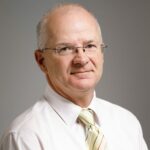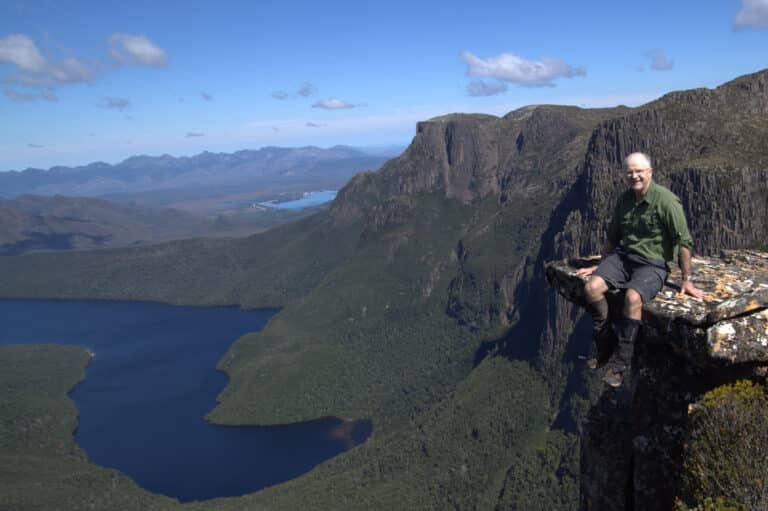
Member Spotlight: Mark Nelson
Hypertension Australia proudly spotlights Professor Mark Nelson, a distinguished Hypertension Australia member for over 20 years. As a senior researcher at the University of Tasmania and Monash University, Professor Nelson has significantly contributed to hypertension research and cardiovascular disease prevention.
With extensive qualifications in medicine and public health, Nelson has pioneered large-scale clinical trials in general practice settings. His work focuses on improving patient care, particularly for older adults, by investigating various aspects of cardiovascular disease prevention and management.
Nelson’s involvement in landmark studies like ANBP2, ASPREE, and STAREE has impacted our understanding of treating high blood pressure and other cardiovascular risk factors in elderly populations. His research, published in prestigious journals, addresses critical gaps in clinical research for older adults and women.
Dedicated to implementing research into clinical practice, Professor Nelson embodies the innovation and excellence Hypertension Australia promotes, emphasising evidence-based approaches in managing hypertension across all age groups.
What inspired your interest in Hypertension?
I was completing a Masters of Family Medicine, looking at cancer and CVD prevention in general practice when I was approached by Chris Reid about a job in ANBP2, a seminal study conducted by the HBPRCA. This study was conducted entirely in general practice, and we had to pioneer the methods to conduct large-scale clinical trials where traditionally trials were not conducted. The study investigated ‘old’ versus ‘new’ pharmacotherapy for high blood pressure for ‘hard’ clinical outcomes. It was published in the NEJM in 2003.
Tell us about your research or initiatives focused on preventing, detecting, and managing high blood pressure and its complications.
Though I remained committed to implementing blood pressure research into clinical practice, working on hypertension, stroke and CVD guidelines, my research interests broadened to other CVD preventive therapeutics. Traditionally we conduct clinical trials in middle-aged men and give drugs to elderly women so to address this, trials I have been involved with are in the over 70s with equal representation of women. ASPREE investigated aspirin for CVD and other outcomes important in the aged (disability and dementia) and was published in three papers in the NEJM in 2017. It remains the largest clinical trial ever conducted in Australia. The ongoing STAREE trial, based broadly on ASPREE, investigates statins in the aged.
Although the ASPREE, ASPREE-XT (its post-trial extension study), and STAREE trials remain the focus of my work I do continue to collaborate on blood pressure studies that will drive improved patient care. We did a lot of post hoc analysis on the ASPREE dataset until this dataset was ‘retired’ as it was no longer contemporaneous. Such a study was QUARTET, an ultra-low dose quadruple pill to address therapeutic inertia in clinical practice. I am also involved in an NHMRC supported study, CONSEP, that is seeking to address the low recognition of primary aldosteronism as a cause of secondary hypertension. Prior work has shown that about 1 in 7 have it but only 1 in ten thousand are recognised in general practice.
Treat high blood pressure in the elderly. They have the most to gain and are not at the adverse risk of drug therapy you think!
Mark Nelson
Have you received any awards, grants, or publications for your work related to Hypertension?
AWARDS
- National Health and Medical Research Council Australian Clinical Research Fellowship.
- Distinguished paper. General Practice and Primary Health Care Research Conference. Twice
- AAAPC Bridges-Webb Medal.
- MIMR ‘Best of the Best’ award for publication of a research paper. Twice
- ACTA Trial of the Year Award (ASPREE)
- University of Tasmania College of Health and Medicine Research Award
- Best oral presentation ACTA International Clinical Trials Conference.
- RACGP Foundation Peter Mudge Medal.
PUBLICATIONS
- Reid, CM, Nelson MR et al., Feasibility of conducting cardiovascular outcome research in Australian General Practice: Results from the ANBP2 pilot. Clin and Exper Pharm and Physiol 1997;24(5):370-373.
- Chow CK, Atkins ER, Hillis GS, Nelson MR, Reid CM, Schlaich MP, Hay P, Rogers K, Billot L, Burke M, Chalmers J, Neal B, Patel A, Usherwood T, Webster R, Rodgers A. Initial ultra-low dose quadruple combination vs monotherapy in hypertension. The Lancet. 2021 398(10305):1043-1052
What do you enjoy doing in your free time?
My predominant pastime is bushwalking, which is an obvious life-affirming activity in a beautiful state such as Tasmania.

Do you have any travel adventures or bucket list destinations you're hoping to experience?
I did a ‘head count’ the other day and realised I had been to 81 different countries. I have neglected sub-Saharan Africa and Antarctica with the latter being on my bucket list. I did the ‘mandatory’ gap year in 1985 travelling to Western Europe and did a 3 1/2 month round-the -world long service leave tour in 2017. COVID and political changes would not allow us to do this today! The big travel adventures have been Iran and Patagonia. My wife and I visited Iran in 2000, again fortuitously before 911. An amazing country with friendly people. At Chogha Zanbil, a ziggurat from 1250 BCE there was us and a guy on the gate! Patagonia was a walking trip. I led a group of fellow bushwalkers through 300km of trails in the most spectacular country. Tassie on steroids!
What's the last great book you read, movie you saw, or show you watched?
The Queen’s Gambit. Who would have thought a streamed series on chess would garner such popular acclaim.
Where can we find out more about your work with Hypertension?
- https://discover.utas.edu.au/Mark.Nelson/publications
- https://aspree.org/aus/
